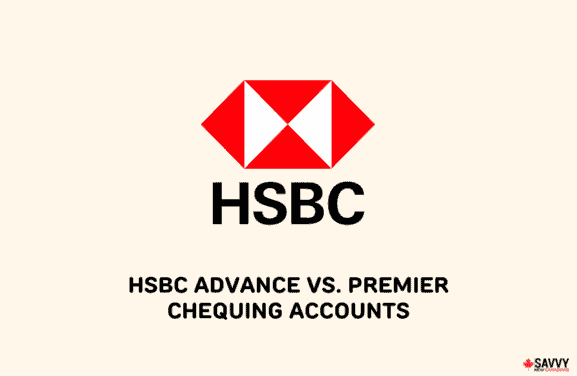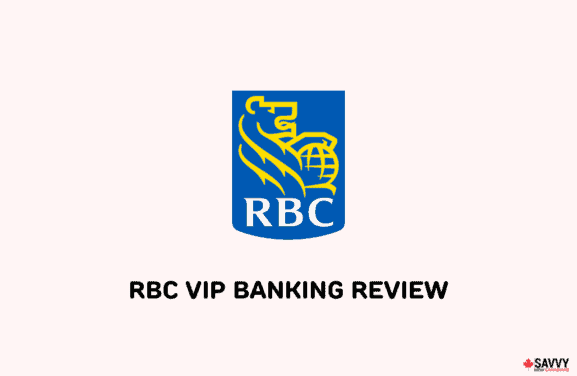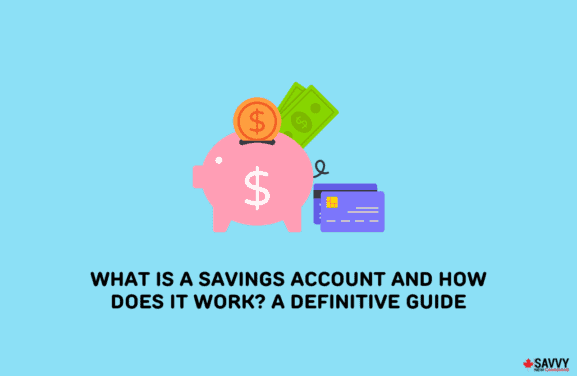Chequing and savings accounts are two of Canada’s most common types of bank accounts.
There are some major differences between these types of accounts that you should know about. Read on to learn how they differ, the pros and cons, interest rates, and more.
Key Takeaways
- Chequing accounts are used for everyday transactions like purchases and bill payments.
- Savings accounts are more useful for saving money and earning interest.
- It’s often a good idea to use both accounts to take advantage of their benefits.
What is a Chequing Account?
A chequing account is a transactional account that is designed to be used daily for all your purchases and bill payments.
It is the account where paycheques are usually deposited, and you can access your funds in different ways, including via ATMs.
They have low or no transaction fees because they are designed to be used regularly.
Canadian banks provide different types of chequing accounts. They differ in the monthly fees, number of free transactions, and interest rates.
You can also have student chequing accounts, joint chequing accounts, business chequing accounts, and more.
What is a Savings Account?
A savings account is designed to help you save money in the short term or long term. It is not designed to be used every day like a chequing account.
Savings accounts allow you to earn interest, although rates differ considerably between accounts. They don’t usually have maintenance fees, but some accounts do.
Because they are not designed for quick access to your funds, savings accounts often limit you to fewer monthly transactions. After this, you are charged fees, which can be high.
There are many types of savings accounts, including basic savings accounts, business savings accounts, high-interest savings accounts (HISAs), joint savings accounts, and more.
Top Differences Between Chequing and Savings Accounts
Regarding the difference between chequing and savings accounts in Canada, there are a few key factors to consider.
Interest Rates
Interest rates are, unsurprisingly, higher with savings accounts. Chequing accounts typically have very low-interest rates or don’t enable you to earn any interest.
Savings accounts will usually enable you to earn interest. The amount depends on the bank and account, and there is a big difference between the lowest and highest interest rates.
Account Fees
Another difference between chequing and savings accounts is that savings accounts are often free. On the other hand, chequing accounts usually have a fee. But this isn’t always the case, especially with digital banks.
Debit Transactions
Most chequing accounts provide a high number of free transactions per month, like debit and Interac e-Transfer transactions, and they are designed to be used daily.
Savings accounts may not allow you to make any transactions, or only very few each month, after which the bank charges a fee.
Chequing Account Interest Rates
Chequing account interest rates are low or non-existent. Most do not allow you to earn any interest, with a few exceptions, usually those accounts offered by digital banks.
Savings Account Interest Rates
Interest rates on savings accounts can vary. They can be quite low for the basic savings accounts, but HISAs like the Motive Savvy Savings Account and the Saven Financial High-Interest Savings Account have much higher rates.
You may have to maintain a minimum balance to get the best rates.
Chequing vs Savings Account: Pros and Cons
There are pros and cons of both types of accounts, as we’ll cover in more detail in the next section. In general:
- A chequing account is the right choice if you want an account to access your funds daily, make regular transactions, transfer money, and spend on your debit card.
- A savings account is the best option if you want to save money for any purpose and won’t need regular access to it.
Chequing Account Pros and Cons
Pros:
- Ideal for using daily for purchases, withdrawing cash from ATMs, paying bills, etc.
- Most allow you to make a large number of monthly transactions.
- Get quick access to your cash when you need it.
- You can also write cheques and make debit purchases using a debit card.
Cons:
- You will sometimes earn no interest on the balance or a small amount.
- Most chequing accounts charge monthly fees.
- You may have to pay fees to use ATMs outside your bank’s network.
Savings Account Pros and Cons
Pros:
- Savings accounts allow you to earn interest on your savings.
- Savings accounts often have no monthly fees.
- They can be useful for saving up for a specific purpose or unplanned expenses.
Cons:
- Few transactions are allowed with most savings accounts, with extra transactions incurring fees.
- They are not ideal for everyday transactions.
- Interest rates are often quite low for basic savings accounts.
Should You Have Both a Chequing and Savings Account?
Ideally, you should have both accounts because they are useful for different purposes.
Use a savings account to save money you don’t need to access regularly, and use a chequing account to carry out daily transactions for all your needs.
You could even have one main chequing account and several savings accounts for different purposes.
When you choose your accounts, look at the monthly maintenance fees, interest rates (for savings accounts), and the number of transactions you can make.
Online-only banks often provide the lowest fees and the best rates. However, digital banks may not have ATMs.
FAQs
Money can be safely kept in either type of account. As long as the bank you use is reputable, your money should be safe and insured up to a certain amount.
While most chequing accounts do not earn interest, some online chequing accounts like Simplii Financial enable you to earn a small amount of interest.
Chequing accounts and current accounts are essentially the same things. In Canada, you will use a chequing account, while in another country like the UK, you might have a current account.
Chequing accounts are the same as checking accounts; the only difference is the spelling. In Canada, they are called chequing accounts, while in the USA, they are called checking accounts.



